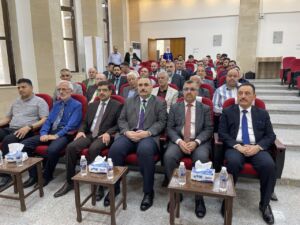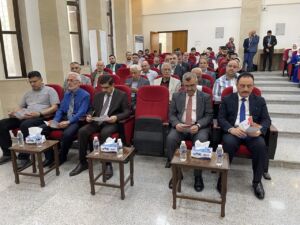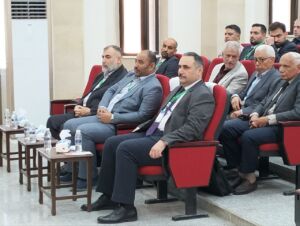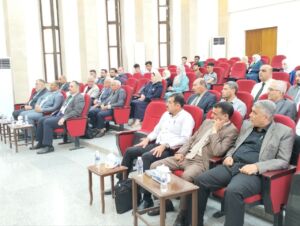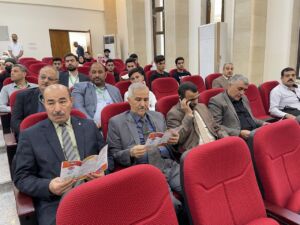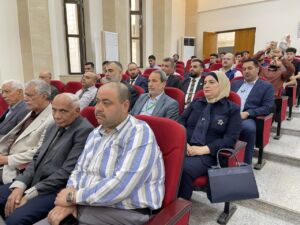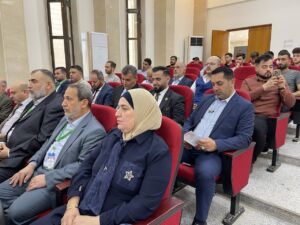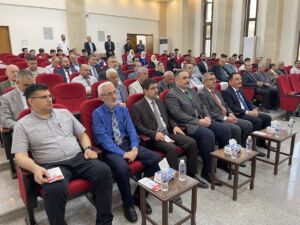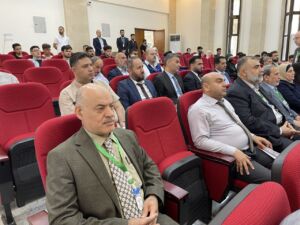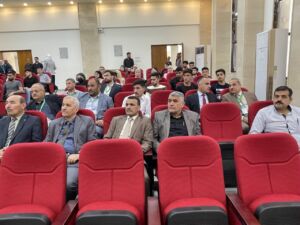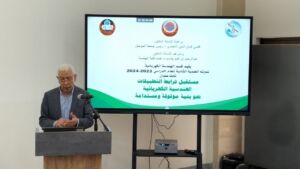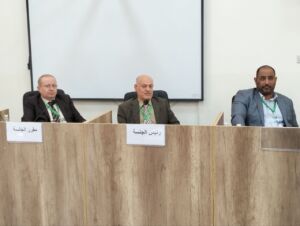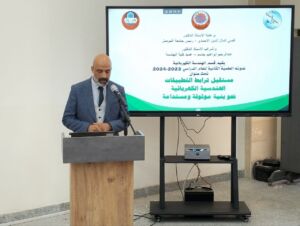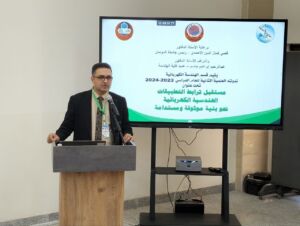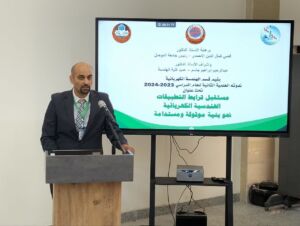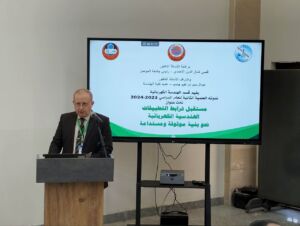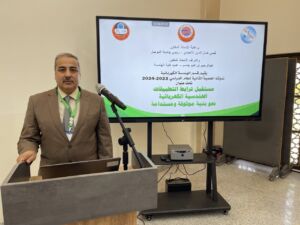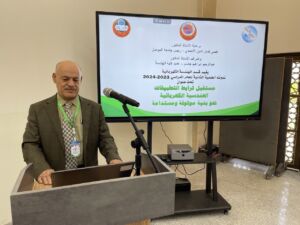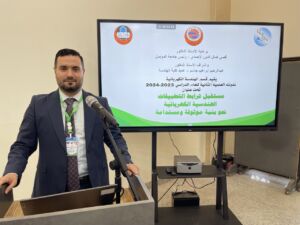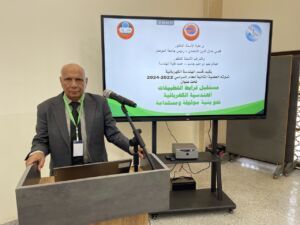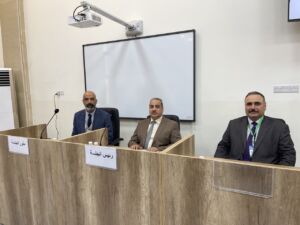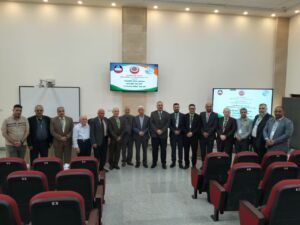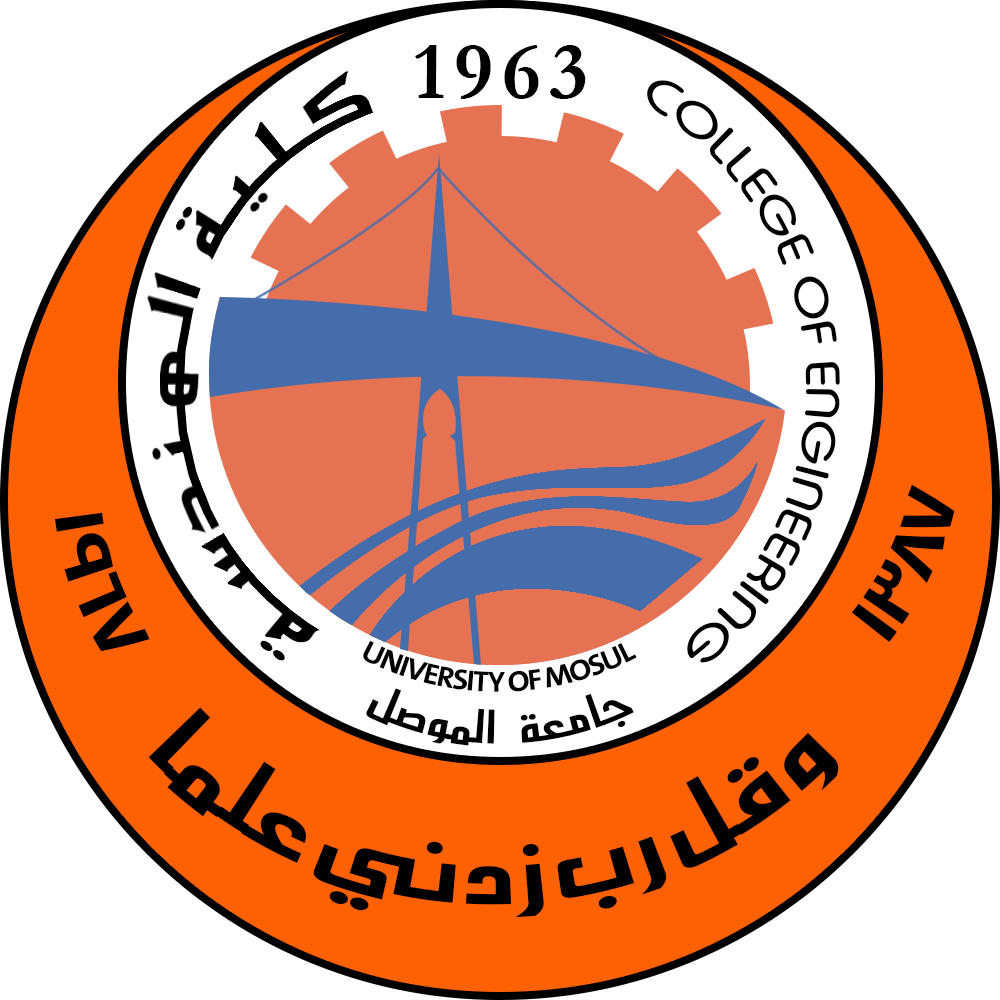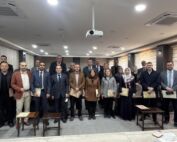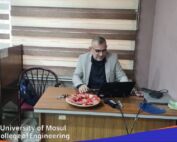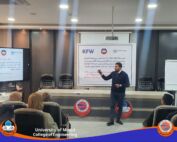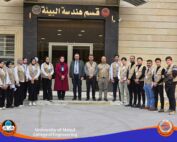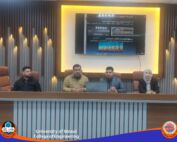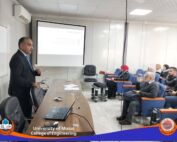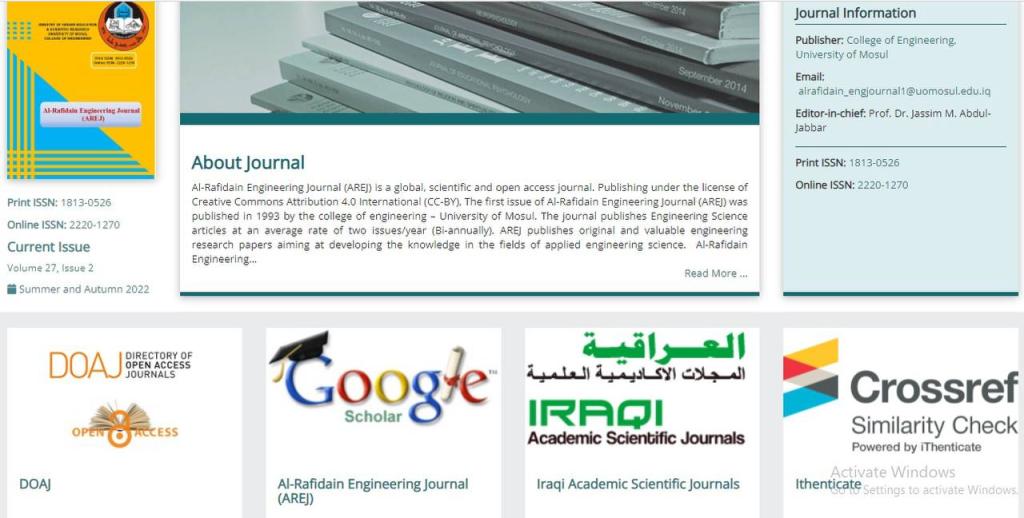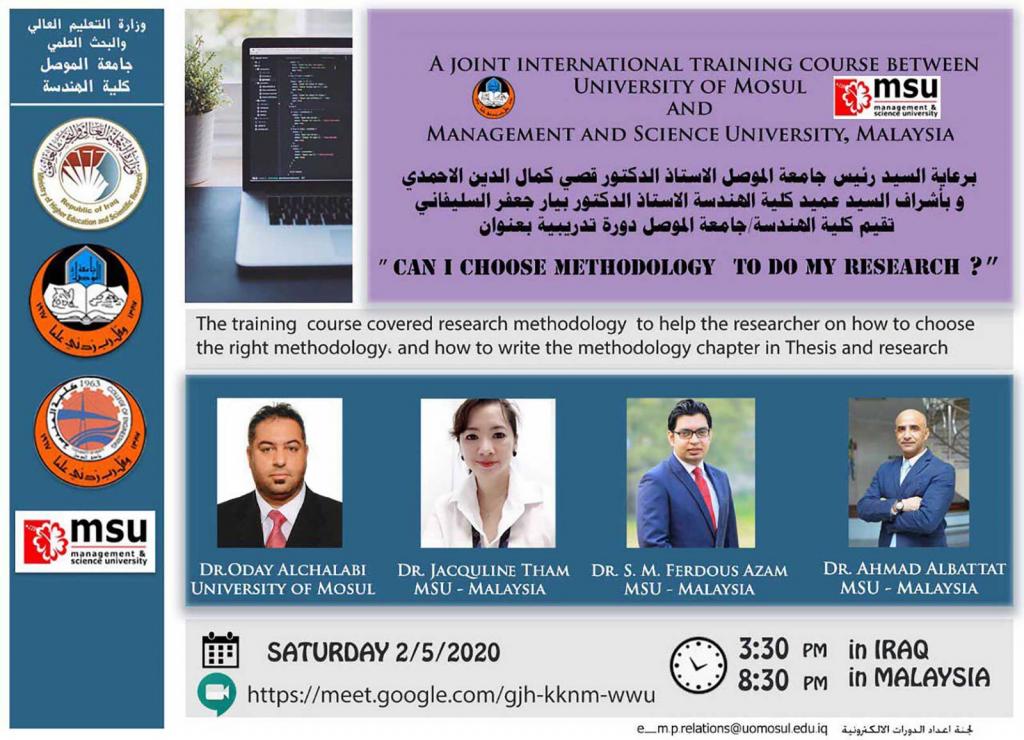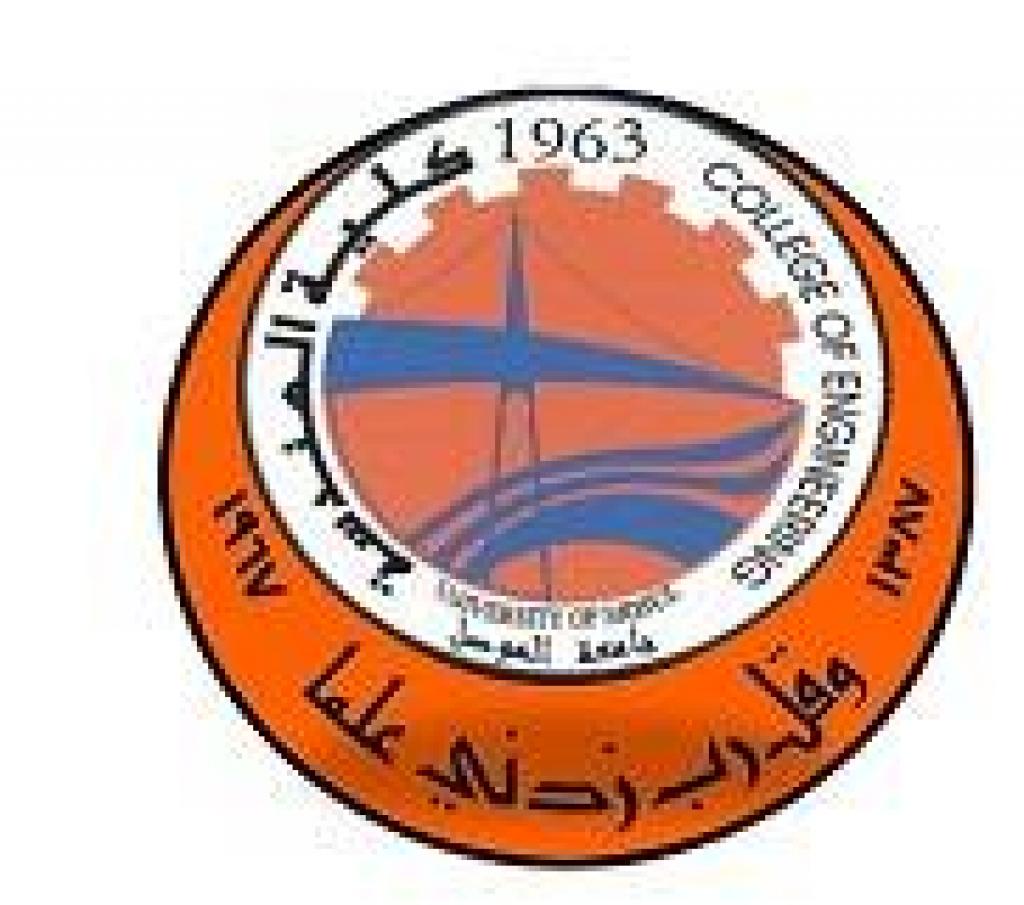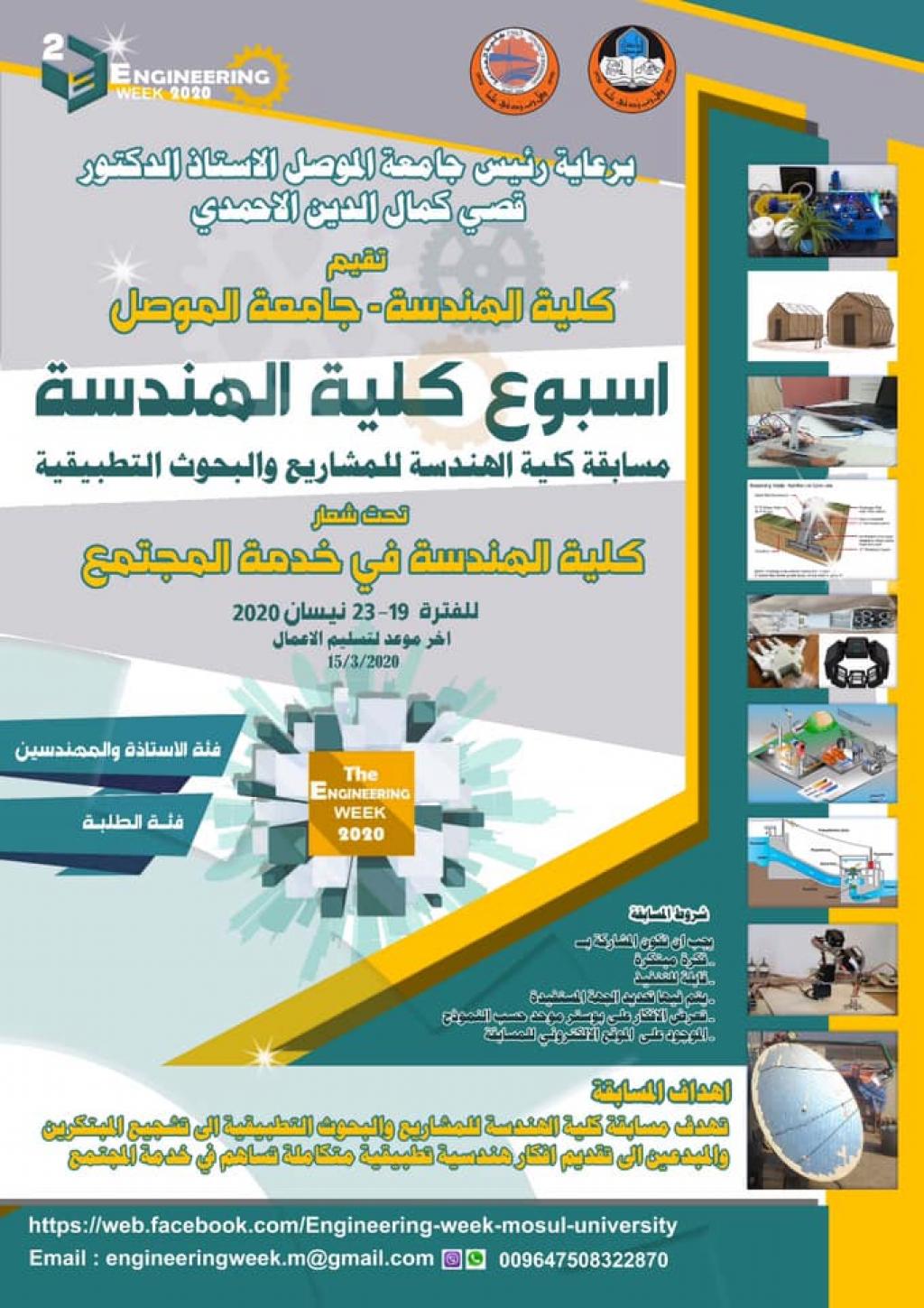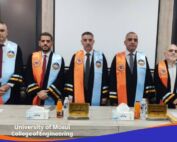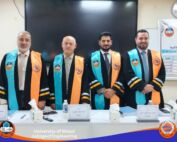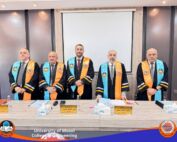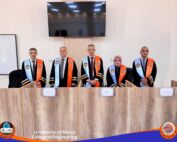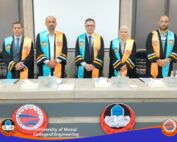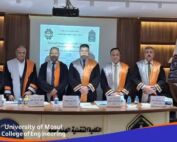17 April، 2024
Scientific symposium on “The future of interconnection of electrical engineering applications towards a reliable and sustainable structure”
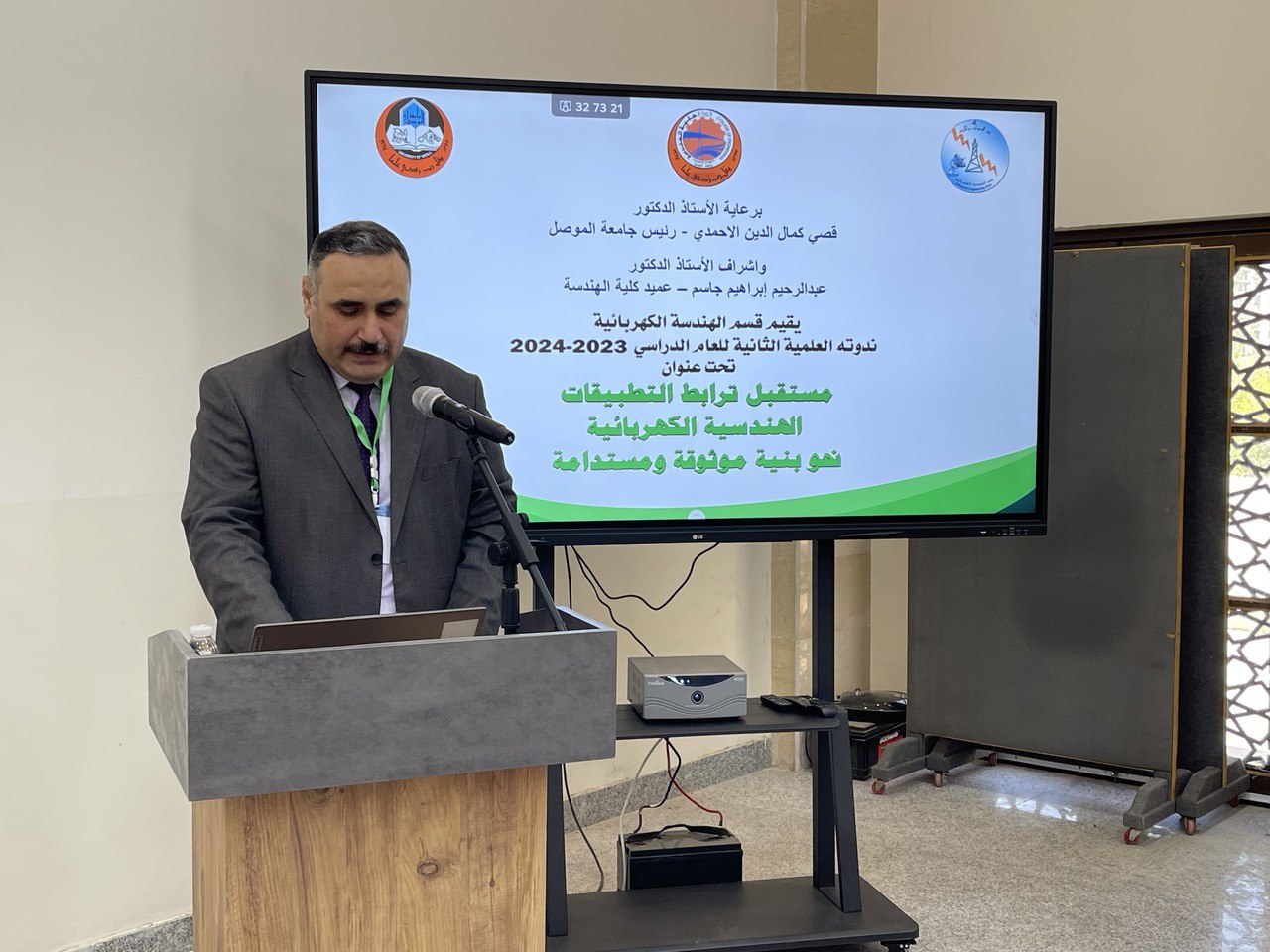
Under the patronage of University of Mosul’s President , Prof. Dr. Kossay Kamalaldeen Al-Ahmady, and under the supervision of College of Engineering’s dean, Prof. Dr. Abdulrahim Ibrahim Jasim, Department of Electrical Engineering at College of Engineering held its second scientific symposium for the academic year 2023-2024, entitled “The Future of Interconnection of Electrical Engineering Applications towards a Reliable and Sustainable Structure,” on Wednesday, 4/17/2024.
The symposium was opened with a speech by Head of the Electrical Engineering Department, Assist. Prof. Dr. Mohammed Tariq Yaseen, followed by an opening lecture delivered by both Assist. Prof. Dr. Muhammad Tariq Yaseen / Head of the Electrical Engineering Department and Assist. Prof. Dr. Firas Sami Hasib. The symposium also included recent and valuable lectures delivered by a group of department teachers.
The symposium included several Recommendations that addressed the following:
1. For the future of smart cities, it is recommended to prepare what these smart surfaces need in terms of communication with transmitters via optical cable, and to take into consideration the locations of smart surfaces in the walls and facades of new buildings and on the roads.
2. Enhancing security measures by implementing advanced encryption protocols for data transfer to enhance security and improve the network infrastructure to support the increasing Internet of Things traffic and ensure reliable communication.
3. Conduct educational campaigns to raise awareness about the advantages and security features of electronic payments based on the Internet of Things.
4. Encouraging startups and local companies to innovate in the field of the Internet of Things through grants and subsidies.
5. Addressing the Communications Directorate in the city of Mosul regarding the proposed design of the optical communications network because of its high potential to improve service and speed of performance.
6. Encouraging the city’s health sectors to use cloud computing and artificial intelligence algorithms for rapid diagnosis and monitoring of disease cases in real time.
7. Educating society about the dangers of accessing untrusted websites and networks in order to avoid the dangers of electronic piracy on personal and financial information and because it has a significant impact on obstructing the electronic development of smart cities.
8. Sixth generation technology provides high data speed, which allows many applications to operate easily, such as medical services, driverless cars, financial services, traffic management, and public facilities.
